Discover Future Ready Leadership With Jacob Morgan
Future Ready Leadership With Jacob Morgan

Future Ready Leadership With Jacob Morgan
Author: Jacob Morgan
Subscribed: 2,374Played: 62,802Subscribe
Share
Description
Are you ready to lead in the future of work? Most leaders aren't! Join 5x best-selling author & futurist Jacob Morgan as he interviews the world's top CEOs, best-selling authors, and leading thinkers to bring you the insights, strategies, and tools you need to become a future ready leader. Guests include CEOs from Best Buy, Netflix, Hyatt, and GE as well as leading thinkers like Seth Godin, Dan Pink, Yuval Harari, and Marshall Goldsmith. This is the world's #1 podcast to lead in the future of work!
Watch the videos on Youtube: bit.ly/406fmFP
IG: https://www.instagram.com/jacobmorgan8/
LI: http://www.linkedin.com/in/jacobmorgan8
TW: https://twitter.com/jacobm
W: https://thefutureorganization.com/
Watch the videos on Youtube: bit.ly/406fmFP
IG: https://www.instagram.com/jacobmorgan8/
LI: http://www.linkedin.com/in/jacobmorgan8
TW: https://twitter.com/jacobm
W: https://thefutureorganization.com/
1069 Episodes
Reverse
October 22, 2025: In this episode of Future Ready Today, Jacob Morgan unpacks five powerful stories defining the next era of leadership and work: 1️⃣ Amazon’s 600,000 Robots – A leaked roadmap shows how automation will replace or reconfigure hundreds of thousands of jobs, raising urgent questions about reskilling and purpose. 2️⃣ OpenAI’s New Browser “Atlas” – The company behind ChatGPT is reimagining web navigation with built-in reasoning. For HR, it signals how internal AI layers could soon connect every system and agent inside organizations. 3️⃣ Global Petition to Ban AI Superintelligence – Over 3,000 global figures, from Richard Branson to Steve Bannon, call for limits on AI’s cognitive reach. 4️⃣ Gartner’s Report on HR Resilience – The top priorities for CHROs in 2025 include embedding adaptability into culture and responsibly operationalizing AI. 5️⃣ The AI Rebellion Inside Electronic Arts – Employees are pushing back on AI mandates they don’t trust, revealing the widening gap between leadership enthusiasm and workforce skepticism.
October 20, 2025: In this episode of Future Ready Today, Jacob Morgan breaks down five major stories that show how leadership, learning, and loyalty are being redefined in real time. Korn Ferry reports that 79% of employees say their job isn’t what they were promised, revealing a growing gap between expectations and reality. Business Insider finds that white-collar professionals now value employer loyalty more than higher pay, signaling a deeper cultural shift in what workers want from companies. Another Business Insider story by Amanda Hoover explores the rise of “vibe working,” where AI tools reshape how we create, collaborate, and code — but also remind us that real innovation still requires human skill and judgment. Meanwhile, SHRM’s State of Recruiting 2025 shows that 69% of organizations are struggling to fill full-time roles, turning hiring into the first real test of the employee experience. And according to Forbes, education systems are falling behind as AI redefines work, leaving both schools and companies scrambling to keep people future ready. Together, these stories reveal a new reality: transparency replaces stability, loyalty outweighs pay, and learning becomes the ultimate competitive edge.
What does it take to build a culture so strong that it powers 68 ships, 100,000 employees, and 12 million ecstatic guests each year? In this episode, Richard Fain, former CEO and current Chairman of Royal Caribbean Group, shares how he led the company’s evolution from a small cruise line into a $16 billion global powerhouse by anchoring performance in purpose and people. Drawing from his new book, Delivering the WoW: Culture as a Catalyst for Lasting Success, Richard unpacks the mindset behind Royal Caribbean’s growth—from defining culture as a shared North Star to prioritizing fit over fitness in hiring and leadership. He explains how the company grew leaders through cross-functional rotations, built transparency through metrics like guest satisfaction and employee Net Promoter Scores, and created alignment through a shared “culture dashboard.” Along the way, he highlights lessons from bold innovations like the VR Innovation Lab—and even a runaway blimp experiment—that shaped a culture of continuous improvement and accountability. Every CHRO who believes culture is the new competitive advantage will find in this episode the proof and the playbook for making it real. ________________ Start your day with the world’s top leaders by joining thousands of others at Great Leadership on Substack. Just enter your email: https://greatleadership.substack.com/
Friday October 17, 2025: In this episode of Future Ready Today... The Wall Street Journal reports that SHRM’s invitation to anti-DEI speaker Robby Starbuck triggered outrage across HR circles. Jacob explains why boycotting the event might reveal more about HR’s fragility than its values. Then, a Times of India report shows nearly half of U.S. employees are secretly using AI tools at work — a growing “shadow AI” movement that exposes weak leadership and poor communication. Reuters highlights how Citigroup’s AI copilots now save 100,000 hours per week, while Unleash.ai and Gallup reveal deep workforce divides: only one in three workers feel future-ready and just 40% have a “quality job.” Finally, HR Canada Magazine finds that Gen Z workers feel more comfortable talking to ChatGPT than coworkers — and Harvard Business Review questions if CHROs should abandon performance improvement plans. Each story uncovers one truth: the future belongs to leaders who can handle discomfort, embrace AI, and rebuild trust in the workplace. Get my new book here: 8EXLaws.com
October 16, 2025: Amazon is cutting 15% of its HR team, signaling a shift from administrative people functions to data-driven, AI-powered HR. Younger workers are turning to TikTok and ChatGPT to understand their benefits instead of relying on HR portals. Facebook is re-entering the job market, bringing hiring into local digital communities. Microsoft says AI could save over 12 billion hours a year—but only if we manage “shadow AI” responsibly. And billionaire CEO Ken Griffin predicts a future where humans work just three days a week. In this episode, Jacob Morgan breaks down what these stories really mean for leaders. What happens when HR becomes more automated than human? Why are employees trusting algorithms and influencers more than their companies? And how do leaders create balance between productivity and purpose in an AI-driven world? Each story reveals a deeper truth: technology may change how we work, but leadership defines why we work.
October 15, 2025: AI is no longer just automating work — it’s reorganizing it. In today’s episode of Future Ready Today, Jacob Morgan explores five major stories reshaping leadership and HR: 🏪 Walmart + ChatGPT: Inside the launch of “Agentic Commerce” and how it’s transforming frontline work. ✊ AFL-CIO’s Worker-Centered AI Agenda: Why labor unions are fighting for algorithmic transparency and worker voice. 💥 Former Intel CEO Pat Gelsinger’s AI Bubble Warning: The hype, the risk, and the long game for HR. ✈️ GE Aerospace’s $30M Workforce Training Investment: How one legacy company is doubling down on human capability. 🤖 The “AI Scapegoat” Story: Why blaming technology for layoffs could destroy employee trust. Jacob breaks down what these stories mean for HR professionals and business leaders — and why the future won’t belong to those who use AI best, but to those who use it most humanly.
What if business leaders cared for their employees the way loving parents care for their children? That simple, profound shift of treating employees like family actually became the engine behind a $4 billion global success story. In this episode, Bob Chapman, Chairman of Barry-Wehmiller, also known as The CEO Who Put Humanity Back into Business, pulls back the curtain on how to build an organization that seamlessly combines economic strength with genuine human care. He explains how Barry-Wehmiller grew from an $18 million struggling manufacturer into a $4 billion global company by designing a balanced business model and fueling it with a “culture of care.” Bob also breaks down the three teachable skills behind his leadership philosophy: empathetic listening, recognition and celebration, and a culture of service. He also advocates for “hard love, not layoffs,” aiming for natural attrition and efficient design instead of job cuts because fear-based management, and short-term thinking destroy both people and performance. He even addresses the role of AI in business, arguing that technology can enhance humanity when guided by leaders who care. For CHROs leading cultural transformation, this episode offers a blueprint for turning human care into a lasting competitive advantage. ________________ Start your day with the world’s top leaders by joining thousands of others at Great Leadership on Substack. Just enter your email: https://greatleadership.substack.com/
October 10, 2025: A new era of Responsible Intelligence is emerging. Governments are considering human-quota laws to keep people in the loop. Kroger is rolling out a values-based AI assistant that redefines trust and transparency. And legal experts warn that AI bias in HR could soon become a courtroom reality. In today’s Future-Ready Today, Jacob Morgan explores how these stories signal the end of reckless automation and the rise of accountable leadership. He shares how the future of work will be shaped not by faster machines, but by wiser humans—and offers one simple “1%-a-Day” challenge to help you lead responsibly in the age of AI.
October 9, 2025: Burnout isn’t always burnout — sometimes it’s just work that’s lost its rhythm. In today’s Future-Ready Today episode, Jacob Morgan explores six powerful signals reshaping the modern workplace. From Google tightening its hybrid work policy to new data revealing that most corporate cultures aren’t ready for AI, the future of work is moving from convenience to clarity. You’ll hear how job seekers are prioritizing reputation over perks, why “linchpin” executives are cracking under pressure, and how one-third of leaders are now testing AI before hiring. Then Jacob takes aim at the burnout narrative — separating stress from exhaustion, and explaining why the real issue is recovery, not overwork. He closes with the 1%-a-Day Challenge: one practical habit to build discipline, focus, and energy for the long game of leadership. If you lead teams or shape culture, this episode will help you rethink what it truly means to be future-ready in an era where easy work is over — and meaningful work is what’s next.
AI was supposed to make work faster and smarter — but for many organizations, it’s doing the opposite. In this episode, Jacob breaks down three powerful signals shaping the AI reality check every leader needs to understand: • AI Workslop – the flood of low-quality, machine-generated output wasting time and eroding trust. • The AI Plateau – why 95% of companies report no measurable ROI from their AI tools. • The EY Report – new data revealing nearly $4.4 billion in financial losses from poor AI governance. Through a futurist lens, Jacob reveals why the next competitive advantage won’t go to the fastest adopters — but to the most discerning ones. He shares how future-ready leaders can design systems of clarity, ethics, and accountability to make AI truly work for people, not against them.
CHROs today face a pressing mandate: how to build cultures of clarity and belonging while navigating hybrid work, rising employee expectations, and the disruptive pace of AI. The risk of drifting into transactional cultures is real, yet so is the opportunity to shape organizations where culture drives performance and technology enables growth. The question for CHROs is, how do you create alignment while preparing your workforce for what’s next? In this episode, Paulo Pisano, EVP and CHRO at Booking Holdings—and the leader shaping the Future of Work for 24,000 employees—shares how culture and AI intersect to redefine leadership. He explains why culture is ultimately about how people get things done, why clarity is the cornerstone of inclusion, and what it means to bring your “whole professional self” to work. Paulo also addresses polarizing topics at work, the trade-offs of remote versus office culture, and how employee sentiment, trust in leadership, and decision effectiveness can be measured as cultural indicators. Finally, he offers a forward-looking view on how generative and agentic AI—through both HR applications and customer-facing tools—are accelerating productivity and experimentation, and what this means for reskilling and the future role of HR in shaping culture. ________________ Start your day with the world’s top leaders by joining thousands of others at Great Leadership on Substack. Just enter your email: https://greatleadership.substack.com/
We’ve all had that moment: working at a job we dislike, then moving to a nearly identical role at a different company, and suddenly loving it. The work didn’t change, the industry didn’t change, and the location didn’t change. So what did? The answer is the environment. In today’s Leadership Spark, we explore why employee experience has become the foundation of modern workplaces. Drawing on research, case studies, and over 150 executive interviews, I share why employee experience is not about perks, but about fundamentally changing how organizations shape the environment in which work gets done. Every employee’s experience comes down to three things: culture, technology, and physical space. Organizations can’t control the work employees choose to do, but they can control the environment around it, and that environment determines whether people love or hate their jobs. ________________ Start your day with the world’s top leaders by joining thousands of others at Great Leadership on Substack. Just enter your email: https://greatleadership.substack.com/
The future of work is unfolding faster than anyone expected, and leaders are scrambling to keep up. In this special Best of the Quarter episode, we revisit two standout conversations that tackle the future of work from very different, yet complementary angles. Charlotte Eaton, Chief People Officer at Arm, shares how the company is rolling out AI tools to thousands of employees, the cultural shifts required to keep pace with rapid technological change, and the risks of outsourcing human thinking to machines. Joe Hart, President and CEO of Dale Carnegie, explores why timeless human skills like empathy, trust, and confidence are more vital than ever, especially as younger generations enter the workforce and AI reshapes how we work. Together, these episodes reveal that the future of work isn’t about choosing between people or technology—it’s about how leaders bring both together. ________________ Start your day with the world’s top leaders by joining thousands of others at Great Leadership on Substack. Just enter your email: https://greatleadership.substack.com/
Bad leadership doesn’t just hurt engagement. It can literally hurt people. Studies show that working under a poor leader is one of the leading causes of stress, contributing to health issues like cardiovascular disease. On the other hand, great leaders don’t just make work enjoyable. They shape culture, values, and even society itself. In today’s Leadership Spark, I explore why leadership matters more than ever and what it will take to be a leader in the future. I share insights from my extensive research, including interviews with 140 CEOs from some of the world’s biggest organizations and a global LinkedIn study with nearly 14,000 employees. Together, these conversations reveal how leadership is being redefined in the face of AI, globalization, and the changing expectations of employees, and why every leader needs to rethink their role as a lighthouse for the future. ________________ Start your day with the world’s top leaders by joining thousands of others at Great Leadership on Substack. Just enter your email: https://greatleadership.substack.com/
What does it take to lead 800,000 employees across nearly 10,000 hotels into the future of work? In this episode of Future Ready Leadership, I speak with Ty Breland, CHRO of Marriott International, about how the company is building a workforce strategy that is tech-enabled but human-centered. Ty explains why technology should automate tasks but create more space for authentic human connection, how Marriott is using AI and workforce analytics to inform smarter decisions, and why wellbeing must now include financial and mental resilience alongside physical health. We also explore why leaders need to shift from annual surveys to real-time listening if they want employees to feel genuinely heard, how Marriott develops leaders from the frontline to the executive suite, and why Ty reframes change management as “change acceleration,” built on alignment, healthy debate, and agility. ________________ Start your day with the world’s top leaders by joining thousands of others at Great Leadership on Substack. Just enter your email: https://greatleadership.substack.com/
Work is supposed to be human, but too often it feels like the opposite. For decades, we’ve built organizations on outdated assumptions: managers as “slave drivers,” employees as “cogs,” and work itself as “drudgery.” No wonder so many people feel disconnected. In today’s Leadership Spark, I break down what employee experience really means and why it’s the foundation of the future of work. We start by unpacking the basic concept of “experience” itself, how it shapes our memories, and why those memories define the relationships employees want, or don’t want, to have with their organizations. From there, we explore the flawed assumptions we’ve built work on, and what it takes to shift from a model of utility, where people need to work, to one of experience, where people want to show up. The future of work isn’t about cake, ping-pong tables, or corporate slogans. It’s about designing organizations where humanity comes first. ________________ Start your day with the world’s top leaders by joining thousands of others at Great Leadership on Substack. Just enter your email: https://greatleadership.substack.com/
Leadership may come with titles, pay, and freedom, but it also demands sacrifice, and too often, leaders forget this truth. When they do, organizations slip into coddling cultures, unclear values, and employees unprepared for the realities of work. In this episode, Patrick Lencioni, CEO of The Table Group and bestselling author of The Five Dysfunctions of a Team and Working Genius, breaks down what leadership really requires and why so many organizations get it wrong. We explore why true leadership is rooted in service, clarity, and accountability, not perks or comfort, and caution against the dangers of companies trying to be “everything to everyone.” We also explore the balance between inclusion and responsibility, the widespread misuse of psychological safety, and how overemphasizing well-being can unintentionally weaken resilience. This conversation is a reminder that leaders must be brutally clear about values, hire for humility, hunger, and smarts, and embrace discomfort as the foundation for growth and long-term success. ________________ Start your day with the world’s top leaders by joining thousands of others at Great Leadership on Substack. Just enter your email: https://greatleadership.substack.com/
What makes vulnerability in leadership powerful, but also dangerous? Leaders often confuse vulnerability with simply admitting mistakes or showing emotions. But without the right foundation, being “open” can backfire, leaving you looking weak or incompetent instead of inspiring trust. In today’s Leadership Spark, the spotlight is on the eight attributes of vulnerable leaders, distilled from my conversations with over 100 global CEOs. The discussion reveals that vulnerability on its own isn’t enough. It has to be paired with strong leadership qualities. We’ll unpack the three crucial attributes leaders need, such as competence, self-confidence, and motivation. You’ll hear real-world stories from failed $150M bets to CEOs battling panic attacks that show how uncomfortable but necessary vulnerability is. ________________ Start your day with the world’s top leaders by joining thousands of others at Great Leadership on Substack. Just enter your email: https://greatleadership.substack.com/
What does it really take to reach the top of an organization? Beyond the glossy titles and corner offices lies a culture of sacrifice, long hours, and relentless client demands that shape modern leadership. In this episode, we sit down with Pat Tomlinson, CEO of Mercer, to explore the realities of work culture, the growing “996” trend of long hours, and the sacrifices it takes to rise to senior leadership. Pat shares candid reflections on his own work ethic and why hard work, visibility, and flexibility remain cornerstones for career growth, particularly in professional services. From there, the conversation expands into major workplace shifts—declining birth rates, longevity risk, and the mounting pressures on healthcare and retirement systems. We also discuss the war for talent, the evolving role of employee experience and wellness programs, and the balance between organizational support and individual accountability. Finally, we explore AI’s impact on work, why productivity gains require redesigning jobs rather than bolting on technology, and the cultural challenges leaders face in adopting these tools. ________________ Start your day with the world’s top leaders by joining thousands of others at Great Leadership on Substack. Just enter your email: https://greatleadership.substack.com/
We often talk about employee engagement, but before that comes something deeper: experience itself. Just like we invest our own time and money into personal experiences that create lasting memories, employees evaluate their organizations through the experiences they have at work. The problem? For over a century, companies have designed work as if humans were robots—linear, rigid, process-driven, and void of humanity. From definitions of “manager” as “slave driver” to “employee” as “cog,” the very language of work reveals how broken the system has been. But times have changed. In today's Leadership Spark, we'll unpack the true meaning of experience at work and why it’s become the defining factor of the future workplace. If organizations want to attract, retain, and inspire talent, they must redesign around humanity, not utility. This episode explores why experience is the missing link between engagement and performance, and how leaders can bring humanity back to work. ________________ Start your day with the world’s top leaders by joining thousands of others at Great Leadership on Substack. Just enter your email: https://greatleadership.substack.com/






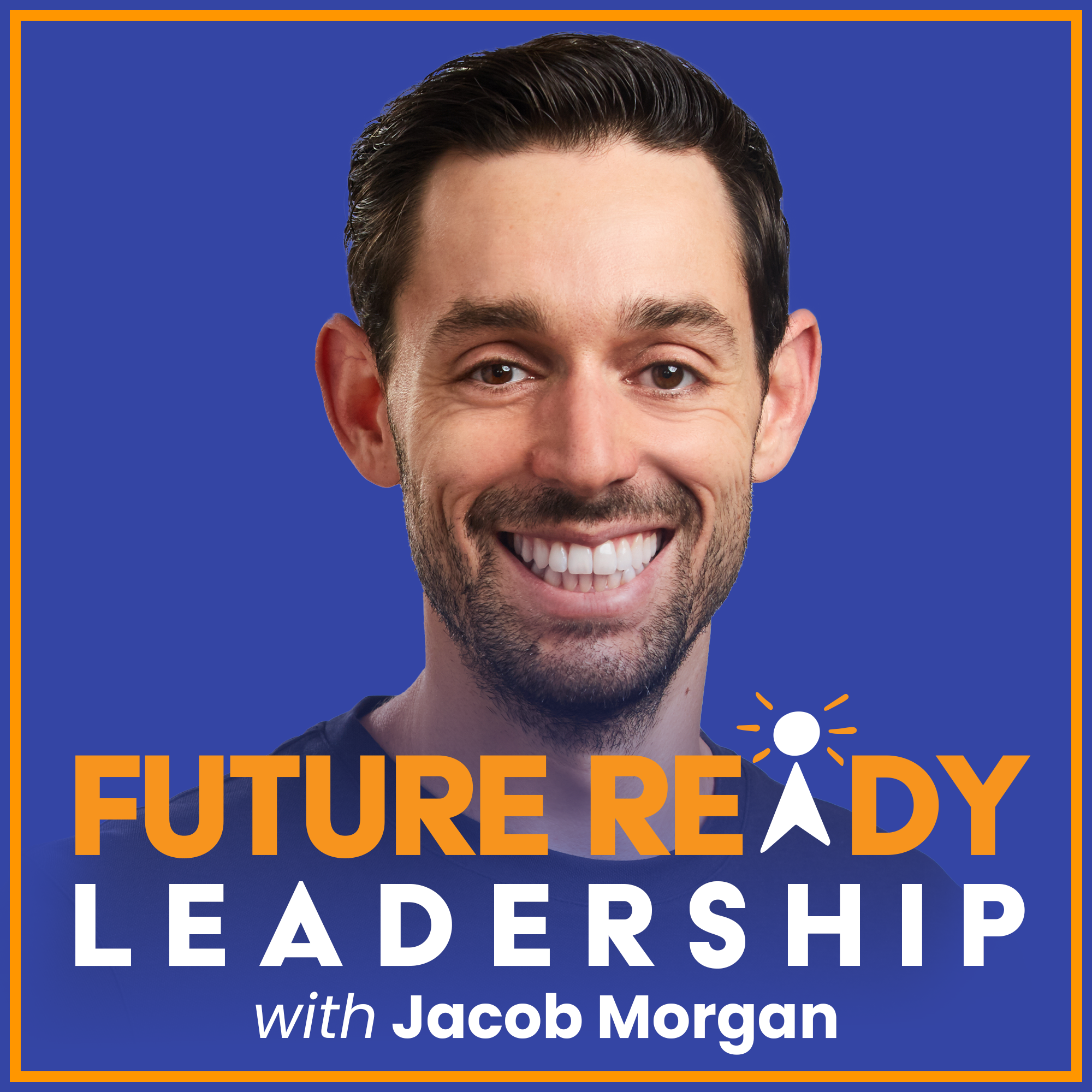

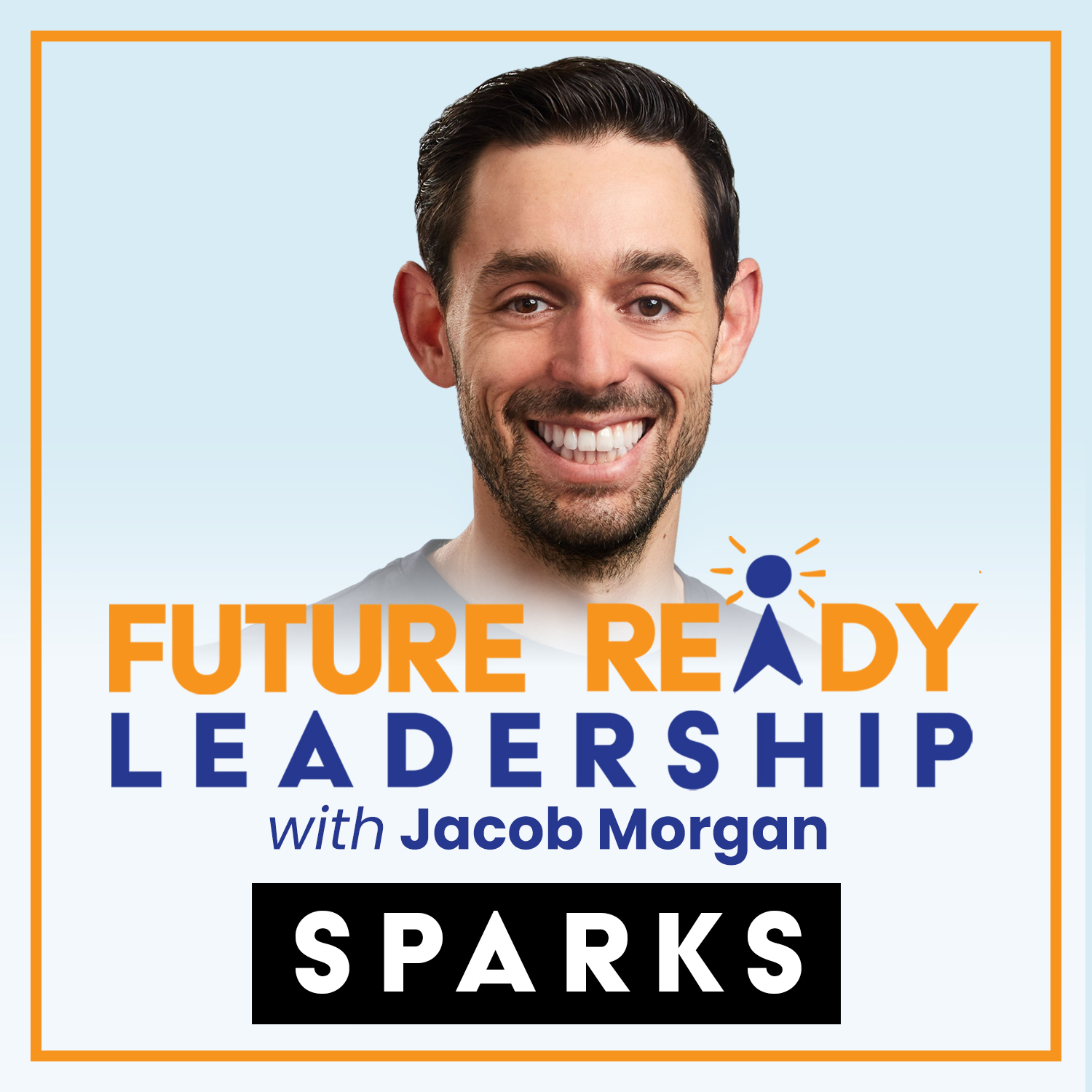
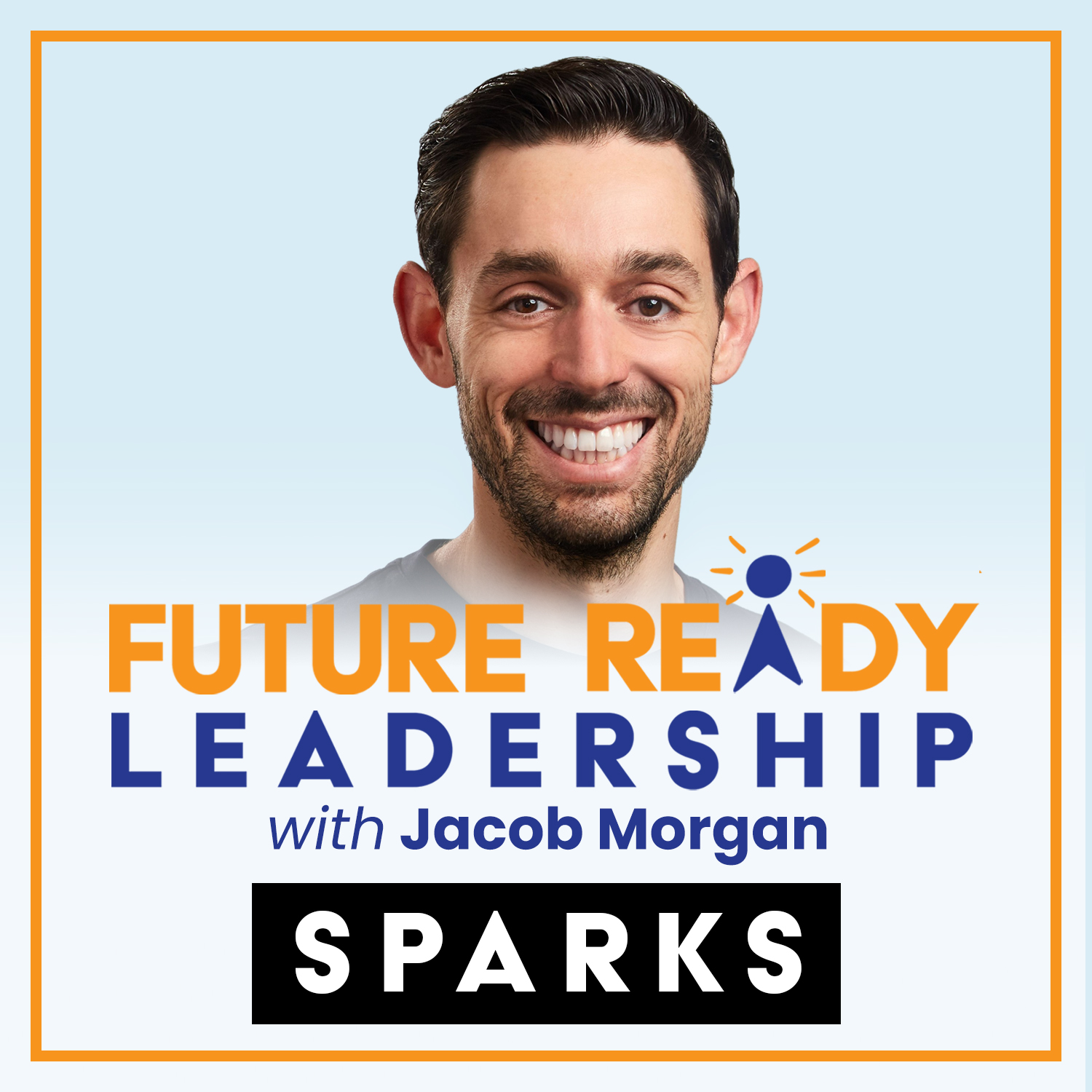

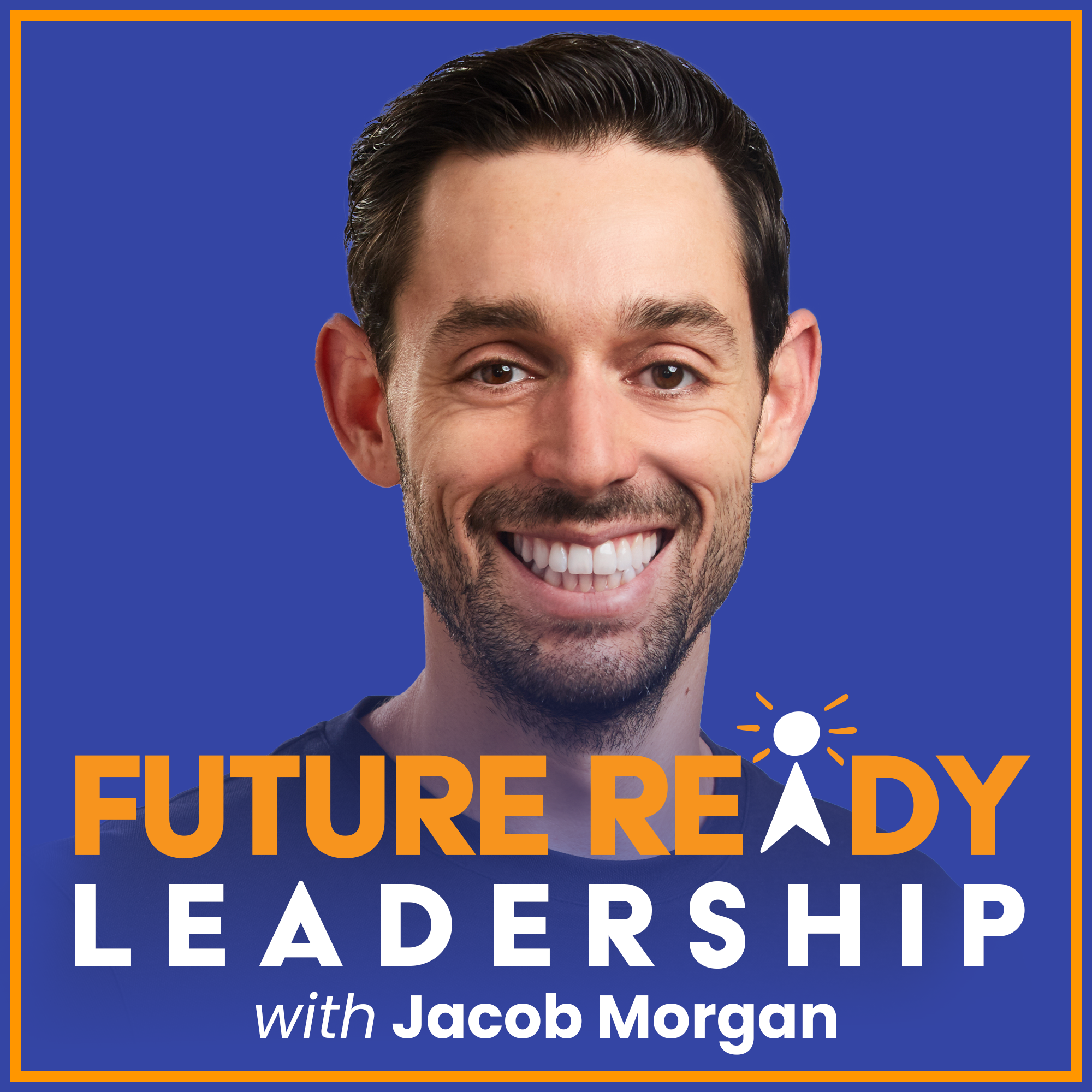
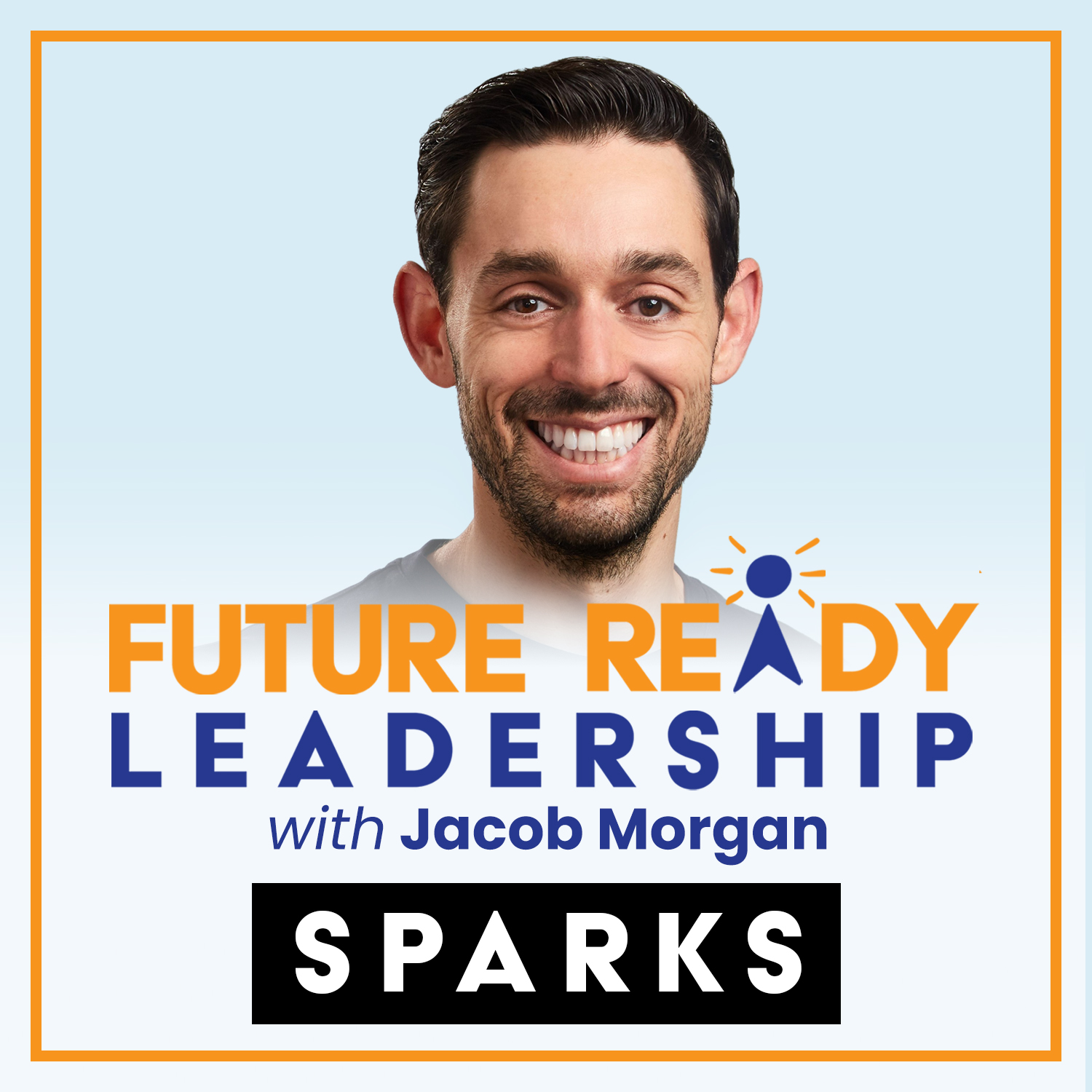



Jacob really enjoyed your conversation with Dr. Goleman!
why 35 h a week isn't a good idea?
Great massage! but turn down that background music please:)
super interesting! thanks Jacob
great Episode!